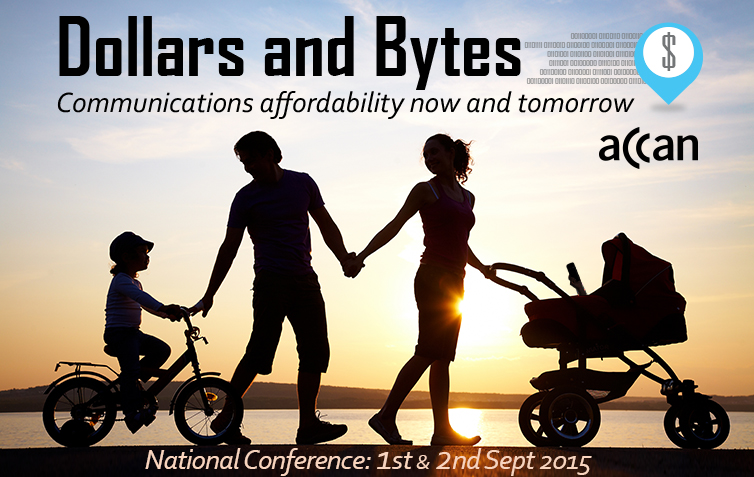- Details
The Australian Communications Consumer Action Network (ACCAN) has today announced the successful Grants Scheme projects for the 2015 Round. The ACCAN Grants Scheme funds projects which undertake research on telecommunications issues, represent consumers or create educational tools which empower consumers to derive the greatest benefit from telecommunications products and services.
The Grants Scheme is competitive and this year received 66 applications from a range of research, private sector and community organisations.
"This year's applications represented a fascinating blend of emerging technology as well as long-standing consumer challenges," said ACCAN Deputy CEO, Narelle Clark. "We congratulate the successful candidates and look forward to working with them on these tremendous projects."
- Details
The Communications Law Centre, UTS
Grant round: 2015
Grant: $30,522
Read more: Improving the Communication of Privacy Information for Consumers
- Details
Monash University
Grant round: 2015
Grant: $14,572
Read more: Going Online on Behalf of Others - an investigation of ‘proxy’ internet consumers
- Details
Curtin University
Grant round: 2015
Grant: $26,200
- Details
Department of Media and Communications, the University of Melbourne
Grant round: 2015
Grant: $49,267
- Details
Media Access Australia (MAA)
Grant round: 2015
Grant: $55,706
- Details
nbn™ has been tasked with providing broadband to all premises at affordable prices, regardless of the cost to provide these services. This will result in a number of services that will be loss making or non-commercial (i.e. fixed wireless and satellite services). The current arrangement is for nbn™ to fund these services through higher costs for services over other parts of its network. However, the Government wishes for the funding to be transparent and for all network providers to contribute to these services, not just nbn™.
The Bureau of Communications Research (BCR) recently consulted on potential alternative funding arrangements for these non-commercial services. They posed a number of questions about how these services could be funded, to which ACCAN provided feedback. Our submission focused on four areas:
-
- concern over the affordability of services;
- equity of services between consumers in fixed wireless and satellite areas and those in the fixed footprint;
- concern that the BCR was not focusing on consumers use of broadband; and
- queried how commercial services offered over the fixed wireless and satellite network will be treated.
- concern over the affordability of services;
Read more: Funding for fixed wireless and satellite services
- Details
Calling Number Display (CND) allows the people you call to see your telephone number displayed on the screen of their telephone. It applies to both mobile phones and landlines. If you don't have a silent line, unlisted number or have not blocked CND, the people you call will generally be able to see your number on their telephone screen.
The CND feature has important privacy implications because there may be times when consumers don't want their number identified to the person they are calling. Recently, the Calling Number Display Code was reviewed by the Communications Alliance. A number of changes were proposed, including downgrading the Code to a Guideline, which would not be enforceable by the Australian Communications and Media Authority (ACMA).
- Details
The TIO, Australian telcos and financial counsellors have worked together to develop best practice guidelines to assist telcos to help customers who are experiencing financial hardship.
The second edition of the guide, Responding to Customers in Financial Hardship: Principles and Practices for Telecommunications Providers, was published in May 2017.
- Details

The ACCAN National Conference, Dollars and Bytes - Communications affordability now and tomorrow, was held from 1-2 September, 2015, at the Aerial UTS Function Centre in Sydney.
Affordability is one of our core objectives and was the focus of the Conference. Affordability of communications products is an issue that affects all consumers, from young people, to families and seniors.
Presentations and transcripts are now available and are linked below.
- Details
Summary of ACCAN's activities from 1 December 2014 to 28 February 2015.
- Details
Summary of ACCAN's activities from 1 September to 30 November 2014.
